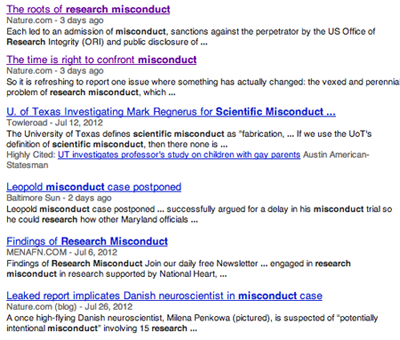1.2 Considering Consequences

Making Good Choices
Understanding how to make good choices as practitioners and leaders in the fields of renewables and sustainability will require both scientific knowledge and an awareness of the various positions along with projected trade-offs. These types of analyses require the consideration of more than technological optimization or basic costs and benefits; as numerous cases demonstrate, they often require the deeper consideration of ethical issues and embedded values. Not understanding these ethical issues and embedded values in the production of research and professional application of training can lead to outcomes that are unjust, increase risk, change economic relationships.
Not paying attention to ethical norms and proper research conduct can impact careers.
Impacts on Career
Careers can be directly impacted by ethical violations. Tenured jobs are lost over research ethics violations; foreign nationals can be deported over non-compliance when researching on government funds; entire labs have been closed due to ethics violations.
Ethical Comprehension is Not Easy
Ethics can be tricky, particularly when a practitioner researcher may be representing both personal interests and organizational interests in the same role (such as a reviewer of grant applications). It is not always obvious what is right and wrong behavior in certain situations, such as in considering conflicts of interest, or whether one can remove bias in reviewing the work of a friend or the work of someone from an opposing viewpoint. The key is to learn about ethics and where to go to learn more–find someone you can talk with about the issues at hand.